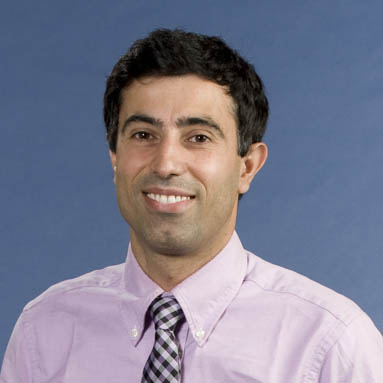When Wole Soboyejo suspended his duties as provost to serve as interim president of WPI in May 2022, he moved to a different office and took on challenging new duties, but he continued to make time for his research—something he considers critical to his academic role.
Soboyejo continued his research with an interdisciplinary team of undergraduate and graduate students, postdoctoral researchers, and research faculty members. The team recently reported in the journal Biomaterials Advances that gold nanoparticles coated with a polymer and linked to an anti-cancer agent can bind to breast cancer cells that are difficult to target.
“For one hour of every weekday, I share my knowledge and experience with a team that does work that I find most fulfilling,” Soboyejo says. “I also get tremendous joy from seeing my students develop into scientists and engineers that are tackling some of the important global challenges of our time. Perhaps most important, my efforts in research help me to remain sensitive to the challenges that my faculty colleagues face on a daily basis as they try to engage in research that is meaningful and important to them.”
A student who has worked with Soboyejo says the researcher’s expertise, guidance, and—most important—dedication of time, have made a lasting impact.
“President Soboyejo’s ability to engage his team in complementary roles requires great scientific vision and taught me how to look at the bigger picture in approaching real-world problems,” says postdoctoral fellow Arvand Navabi ’22.
The researchers reported that targeted tiny gold particles adhered better to triple-negative breast cancer cells than they did to normal breast cells, making the particles possible candidates for the delivery of anti-cancer treatments to malignant cells that resist other targeted therapies.



